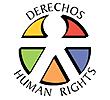 |
|
 |
| Index | E-mail | Resources |
June 1998 |
 |
|
 |
| Index | E-mail | Resources |
June 1998 |
What is Impunity?
We named this newsletter Without Impunity because we believe that the battle against impunity is essential for the respect of human rights. By denouncing human rights violations and violators, this newsletter aims to be another tool in the battle against impunity. However, we realize that not everyone knows what we are talking about, and thus this introduction.
If you walk on the streets of Mar del Plata, the fashionable beach town and favourite vacation spot in Argentina, you may run into a jovial, forty-plus man, with faded blond hair and a still boyish-good looks. He seems affable and fun-loving. He is one of the most vicious killers produced by the Argentine Navy.
He is Alfredo Astiz, the Navy Captain responsible for the disappearance of the founder of the human rights group Mothers of Plaza de Mayo, two French nuns, a Swedish teenager and countless others. Like Astiz, all the other torturers and killers who committed the most grotesque human rights violations during the “Dirty War” walk free and carelessly in Argentina. They are the beneficiaries of two amnesty laws passed in the late 1980’s, which stopped most investigations and prosecutions of human rights violations, and which enshrined impunity into Argentine law. Similar laws have been passed in many other countries.
Impunity, in the human rights context, refers to the lack of accountability for human rights violations committed, or condoned, by agents of the state. In the vast majority of countries, when agents of the state - members of the military, police and other armed forces, or even of death squads tolerated by the government - commit human rights abuses, they are not punished for their actions. This lack of punishment sends a very clear message to the perpetrators of such crimes that those activities are condoned by the state, and that governments agents can kill, torture or disappear without fear of being brought to justice.
Impunity can be either de jure or de facto, legitimized by amnesty laws or enshrined by corrupted or incompetent judicial systems. Amnesty laws, which stop all prosecutions - and often times investigations - of human rights violators, have been the preferred method in Latin America. Starting with Chile’s auto-amnesty (so called, as the military junta passed a law exonerating itself and its members from punishment for their crimes), countries such as Argentina, Uruguay, Peru and El Salvador have passed wide-ranging amnesties that exonerate all human rights violators (who committed crimes until a given date) of penal responsibility. Even in the absence of such laws, prosecutors are often reluctant to prosecute, and national courts are reluctant to punish, human rights violators. Often times prosecutors and judges are in fear of physical harm if they turn against human rights violators (in countries such as Colombia, many judges have been killed by death squads) or they are afraid that their careers may be compromised. In addition, many countries use military tribunals to try members of the military accused of human rights violations against civilians - which traditionally fail to convict, or to adequately punish, those who are responsible.
Impunity is a violation of human rights, as well as a direct threat to the rule of law which is the necessary basis of a democratic society. States have the obligation to both respect and promote human rights; impunity encourages human rights violations and thus it is a violation of these state obligations. In addition, impunity violates the rights of victims to justice that is established in many human rights covenants and also violates their right to truth. International bodies, for example, have found that when a mother is kept in the dark as to fate of her disappeared child, this can be considered torture. Truth is essential for democratic life; if people do not know what happened, and who did what, they cannot make educated choices when they exercise their voting rights.
The struggle against impunity is an essential part of the struggle for human rights - only when all human rights violators are held accountable for their actions can we hope that human rights violations will cease and justice will prevail.